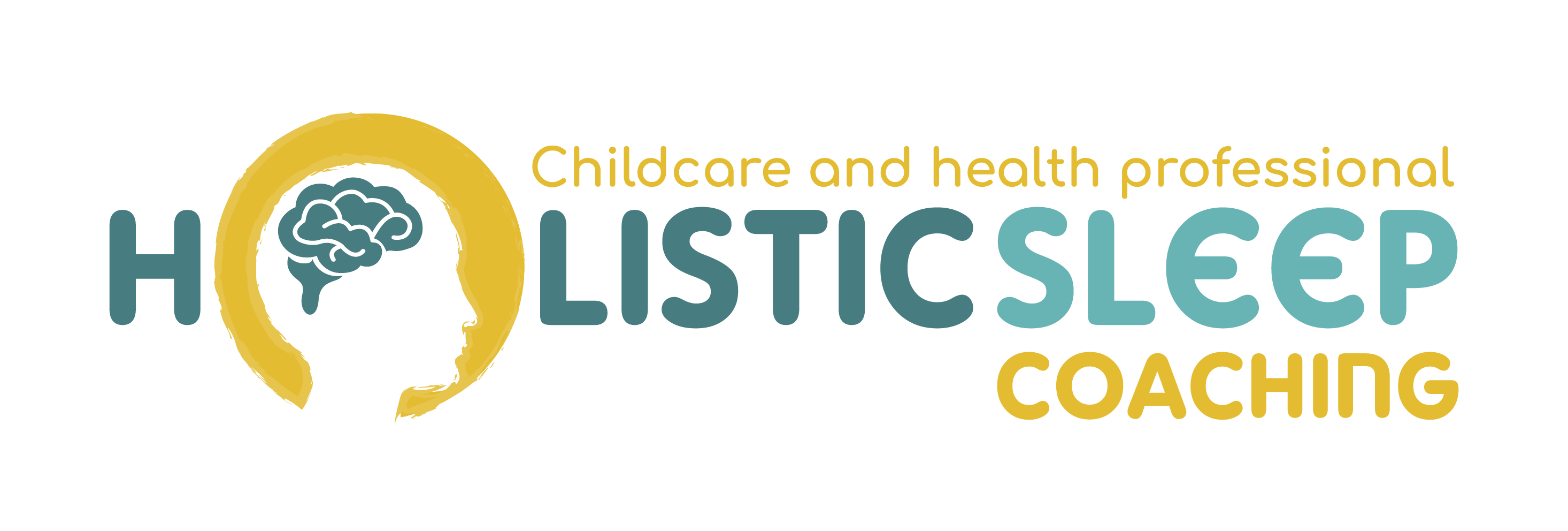Feel like your sleep coaching business is inconsistent and chaotic? I’m going to walk you through the top consultation methods for sleep coaches so that you can have a clear understanding and plan for how to build a consistent income and grow your sleep coaching business.
Understanding what is the best sleep coaching consultation approach or approaches to offer comes down to seven key factors, and they are all important – especially if you want to grow not only an impactful business but also a joyful one. If you prefer to watch the video version of this guide, click the link below.
In-Person Sleep Consultations
First up, let’s talk about in-person sleep consultations. Before COVID, this was hands-down the most popular way to offer sleep support to your clients. Meeting face-to-face—whether at their home, your place, or a hired space—was the go-to method.

Pros of in-person sleep consultations for Sleep Consultants
Now, why are in-person consultations so effective? Because they build a deep connection and trust like nothing else. When you’re right there with your client, you can give real-time feedback and tackle problems on the spot. You’re able to answer questions immediately and work through issues together. Being physically present lets you observe family interactions, including the child or a partner, which gives you a comprehensive understanding of the situation. You see things you’d never catch over a call or email.
Cons of in-person sleep consultations for Sleep Consultants
But let’s be real, there are challenges. Travel can be a big limitation—how far you can go and how far clients are willing to come. This means more logistics, like scheduling and travel costs. In terms of business growth, you’re limited by how many people you can see in a day or week. You can’t scale your time, so the number of clients you can handle will always have a cap. But here’s the thing: despite these hurdles, in-person consultations offer an amazing way to create that personal connection, and if you don’t have the travel time or costs, then this would be a great way to provide support to families.
Virtual Sleep Consultations
Alright, let’s dive into consultation method number 2: Virtual Sleep Consultations.
Virtual consultations, aka video calls using a tool like Zoom, have really become the norm in the last 4-5 years, for several reasons.
Pros of virtual sleep consultations for Sleep Consultants
You can jump on a call from anywhere, no need to travel. This means you can fit consultations around your schedule, whether it’s during the day, at night, or even when your kids are at school. This level of flexibility is amazing, especially when you’re trying to juggle business with family life, which so many of our graduates are. It really allows you to have a level of freedom in your business.

With virtual consultations, your reach isn’t limited by geography. You can serve clients nationally or even internationally. Imagine being able to help families all over the country, or even all over the world. That all of a sudden allows you to reach a lot more families that need someone like you. Which means you can impact more people and you have the potential to earn more money.
The other key benefit is that there are no travel expenses or travel time going from A to B. Plus, it’s easier to squeeze in more consultations in a day when you’re not spending hours trying to get from A to B.
And even though it’s virtual, you still maintain personal contact. You can see your clients, read their expressions, and engage in real-time discussions. In fact, a study by the American Psychological Association found that virtual interactions can be as effective as in-person meetings, and sometimes even more efficient due to reduced distractions and a more controlled environment.
And thanks to post-COVID norms, everyone is now comfortable with video calls, making it easier than ever to connect.
Cons of virtual sleep consultations for Sleep Consultants
However, there are challenges. Some clients might miss the face-to-face connection. They might feel that virtual consultations are less personal or engaging. You need a solid internet connection. Technical glitches can disrupt the flow of your consultations, and poor broadband service can be a major downside.
But here’s the thing: If growing your business and gaining a consistent income and flexibility is key for you, then this is a format to consider.
Phone Consultations for Sleep Consultants
Next up, let’s dive into consultation method number 3.
Phone consultations have their own unique set of benefits, making them an option to consider as a sleep consultant. The first benefit being Accessibility: Phone consultations are incredibly accessible for clients who might be uncomfortable with technology. Not everyone wants to jump on a Zoom call, and that’s okay. Phone calls are simple and easy for anyone to handle.

Pros of phone consultations for Sleep Consultants
Just like virtual consultations, phone calls offer fantastic flexibility in scheduling. You can fit them into your day without much hassle, whether you’re at home, or in a car (which probably wouldn’t be wise unless you had pulled over – but you catch my drift). There is a level of flexibility around where you take the call. Another benefit is that when you are chatting on the phone you tend to dive straight into the issues without distractions. You can cover a lot of ground quickly because you’re focused solely on the conversation.
Cons of phone consultations for Sleep Consultants
However, let’s talk about the downsides. One major drawback is the lack of visual cues. You can’t see your client’s expressions or body language, which makes it harder to build a personal connection and trust. Visual demonstrations are also out of the question, which can be a limitation if your advice requires showing rather than just telling. Also, without face-to-face interaction, it can be tougher to establish a deep personal connection. Some clients might feel less engaged or supported without that visual element. So, while phone consultations are a great tool in your arsenal, especially if a client only wants to chat that way, it’s probably best not to just focus on this, as you don’t get that level of impact and personal connection you do from the one-to-one face-to-face or online sessions.
Group Workshops for Sleep Consultants
Let’s dive into group workshops for sleep consultants. Group workshops are all about interaction. They create a communal learning environment where parents can share insights and experiences. This is great, especially for parents struggling with their child’s sleep. When they see they’re not alone and can learn from each other, it’s transformative.
So, where can you run these workshops? I’ve seen our graduates run them in all sorts of places. You can do in-house sessions for companies at parent wellbeing events or keeping in touch days for parents returning to work. You can also run sessions in the community—hire a space, or use community centers or children’s centers. These settings are perfect for building a sense of community among parents facing similar challenges. Picture your clients walking away with new knowledge and a network of peers who totally get what they’re going through. That’s powerful stuff.

How to structure you group workshops as a Sleep Consultant
Now, let’s talk about structuring these workshops. General Q&A sessions are good, but I love picking a specific issue and diving deep. Spend 40-45 minutes going deep on a topic, then open it up for questions. This way, you provide detailed, focused advice that’s way more beneficial than just skimming the surface.
Pros of group workshops for Sleep Consultants
OK, so the pros. Group workshops are super cost-effective. You may choose to charge a small fee per participant, which makes it affordable for parents and profitable for you. Win-win. The second pro is scalability. Unlike one-on-one consultations, group workshops let you reach more people at once. This massively boosts your impact and helps you grow your client base faster. Plus, it’s a fantastic way to build that know, like, and trust factor. And if you give your attendees a win from your session, they’ll be more likely to seek out your one-on-one services.
Potential challenges of group workshops for Sleep Consultants
Now, potential challenges:One downside is you can’t give each participant the same level of attention compared to a one-on-one session. This might lead to more general advice. So you definitely want to mitigate this by offering Q&A time at the end of the workshop. I’d even take that a step further and ensure you have surveyed your attendees before the workshop to understand their particular challenges. That will give you so much confidence before you start the session because you’ll know what people want.
Another thing to be aware of is that running a successful workshop is a skill and you need to be organized. You need to find a great venue, manage registrations, prep your materials, and ensure everything runs smoothly. That kinda goes without saying, but needed to be said.
Leveraging online group workshops as a Sleep Consultant
However, don’t forget about online group workshops. Now there are so many ways to do this, but to share a really effective way to grow your business using online workshops when starting out when you might not have a big audience is to partner with professionals who have a similar audience—someone running an online parenting course or a postnatal group. Tap into their audience and offer your sleep expertise. It’s a win-win: they get valuable content, and you get in front of new potential clients. By delivering tons of value in these sessions, you establish yourself as an expert and build trust. And again, if people want more personalized help afterward, they can book a one-on-one with you.
So the overall verdict on group workshops is that they are a fantastic way to support a lot of families, build a supportive community, and establish yourself as a leader in the field. Whether you run them in-person or online, they are a powerful tool to help you grow your business and make a significant impact.
Collaborating with Other Specialists
Alright, let’s talk about my last sleep coaching method today and that’s running collaborative sessions with other specialists. So an example might be you as a sleep consultant teaming up with a feeding specialist, like a Breastfeeding Counsellor or an IBCLC.
Now if you are well aligned, then this could be great because you’re addressing both sleep and feeding concerns in one go. Imagine the value for parents—they get expert insights from two specialists in one session! It’s like a one-stop shop, making your sessions more impactful.
Potential challenges of collaborating with other specialists as a Sleep Consultant
But a few things to consider would be coordinating with another specialist can be a bit tricky, especially if it’s a joint venture. It’s not as straightforward as running a solo session. You’ll need to sync schedules, manage logistics, and possibly hire a venue. Who is managing the advertising? There is also the financial aspect to consider if charging – so how are you splitting the income and expenditure? So that’s something to consider.
So like any partnership, you need to start with a very good understanding of what you are looking to achieve, and know exactly how the partnership will run.
Deciding the Best Methods to Offer as a Sleep Consultant
Finally, you might be thinking, “How do I know what is the best method or methods to offer?” Well, it comes down to getting clear on these 7 things.
- Client Needs: Start by understanding the specific needs of your clients. Are they looking for hands-on face-to-face support, or do they prefer the flexibility of virtual consultations? For example, if you are working with busy professionals, they might prefer a lunchtime, late evening, or even weekend consultation.
- Flexibility: Consider how much flexibility you need in your schedule. Virtual consultations offer greater flexibility and can be scheduled around other commitments, like family or another job. In-person sessions and group sessions require more rigid scheduling and possibly travel time.
- Scalability: Think about how scalable each method is. If you need to maximize your time, online consultations might be best – and running online group sessions.
- Cost and Logistics: Assess the costs and logistics involved in each method. In-person consultations may involve travel expenses and venue costs, whereas virtual consultations require reliable technology but have minimal additional costs. Group workshops and collaborative sessions can spread costs among multiple participants but require more upfront planning.
- Client Interaction: Determine the level of personal interaction you and your clients prefer. Some parents may feel more comfortable and supported with face-to-face interactions, while others might appreciate the convenience and efficiency of online consultations.
- Partnership Opportunities: Look at potential partnerships. Collaborating with other specialists can add significant value to your services and help you reach a broader audience. Consider how these partnerships could complement your methods.
To wrap this up, remember there’s no one-size-fits-all answer. The best sleep consultation method or combination of methods depends on your clients’ needs, your expertise, and how you want to structure your business. Start with what feels right for you and your clients, and don’t be afraid to adapt and evolve your approach as you gain more experience and feedback.
If you are looking to build an impactful sleep coaching business, one that empowers families, and you need support with that, click the link below to book a call with us.
Thanks again, and see you in the next blog!

